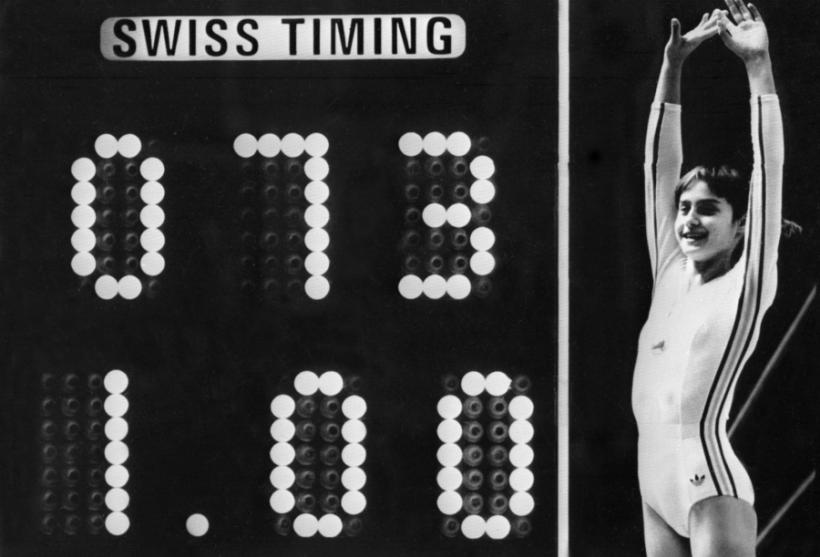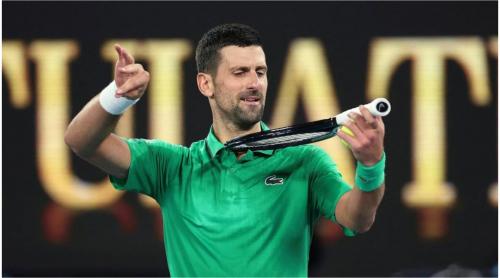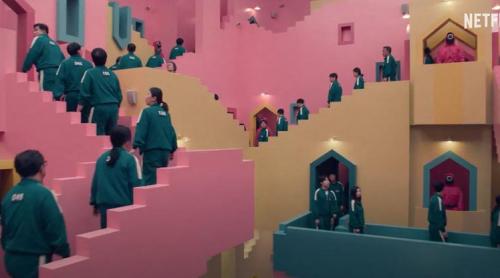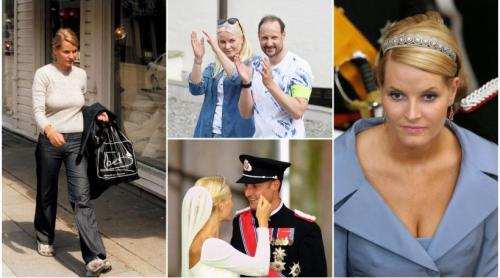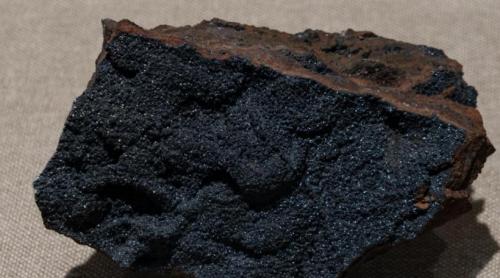"Say It As It Is” Series of Interviews conducted by Marius Tuca
- Marius Tuca : Tell me about the hardships you had to put up with while a gymnast. I want you to do this because many gymnasts achieving far less than you did complain about the strenuous effort they have to make.
Nadia Comaneci: I don't think I ever complained about anything. There were tough times, one way or another, while I was a child. But when I look back at all that I achieved, it seems really like not doing a lot for it. What work did I do, really? Just training. But when one tallies in what I achieved on account of that work, things I never expected. I did not train to be able to travel, I did not train to have access to buying certain things, I did not train to become a celebrity. I just did what I liked to do. It is very important, whatever you do to do it passionately.
- Marius Tuca : And you also assumed responsibility for everything you achieved, or not, in gymnastics.
Nadia Comaneci: But no matter what you do in life, you have to be there body and soul. I assume you have your own sleepless nights, pondering over market research studies or getting ready for interviews, like this one, for instance. So ...
- Marius Tuca : Definitely. How do you comment on the accusations surfacing in the media over the draconian regime imposed by trainers, like Bela and Marta, Bellu and Bitang, and so on?
Nadia Comaneci: I cannot speak for all the female gymnasts. I can only speak for myself. I recall that I worked as much as all the other girls, and sometimes more than the trainers asked from me, and I was never disappointed with myself. I believe many of the gymnasts who complain also have some personal issues in the relationship they have with their trainers. It must be more to it than we get to find out. I never liked commenting on what other gymnasts have to say. They may share with the public their experience, I share mine.
- Marius Tuca : Well, you never complained about the training schedule and requirements because you agreed with it, it became your own.
Nadia Comaneci: True. There were some tough times, but what’s the point?
- Marius Tuca : You spoke about talent. You also spoke about working more than you were asked to. But how about the secret deposits you made for everything: an extra exercise, and extra routine – you always had something new in stock, things untapped.
Nadia Comaneci: Bela always said that of all the gymnasts he trained I was the one he could not fully read, because he did not know exactly what else I had in stock. But if one is smart, one always keeps some things in stock for oneself.
-
Marius Tuca : So, you still keep active those personal reserves?
Nadia Comaneci: Yes.
- Marius Tuca : Speaking about routines and young Romanian girls who want to start a career in gymnastics – you write in you book the following: "There are routines you know you can successfully complete, always. But if Marta told me to approach in a different way a routine and I was unable to do it during the training, then it was clear for me that I was not going to be able to perform it during the competition. The skies did not open for someone to touch me over my shoulder with a magic wand, to take me floating in midair during my uneven bars or beam routines. If one does not build one's own reserves, one has nothing to count on when need be.”
Nadia Comaneci: Which is nice, isn't it ...
- Marius Tuca : It makes for good literature, but in fact, what took you floating over the bars and beam were your had work and your talent.
Nadia Comaneci: Talent helped, that's true. But there are a lot of talents who do not get to express themselves. Only who works had gets to perform at really high level.
- Marius Tuca : And about fame, this is what you say in your book: "Years passed by and I am wiser now; I understand that for a child fame means a lot of overwhelming responsibilities. Sometimes I felt like going under, though I fought to get out for a breath of air. And I must confess I had moments when I felt like letting myself go into the abyss.”
Nadia Comaneci: Just a minute.(She laughs).
- Marius Tuca : What? You do not recognize yourself in these works?
Nadia Comaneci: No. (She laughs)
- Marius Tuca : Were there moments when you contemplated ...
Nadia Comaneci: One, maybe!
- Marius Tuca : Then talk about it!
Nadia Comaneci: I have my own doubts. Why should I share them with you?
- Marius Tuca : But were there such moments? At least that you can admit?
Nadia Comaneci: Yes, but I never felt I was going down for good. I always stayed within a security margin, like when I dive in the jacuzzi: I never let watter climb higher than my neck.
- Marius Tuca : This is how it was for you in that abyss?
Nadia Comaneci: Naturally.
- Marius Tuca : You always had the time and the room for you to get up again?
Nadia Comaneci: Naturally. All the time. This is how I survived.
- Marius Tuca : So, you built your own reserve here too!
Nadia Comaneci: Obviously.
- Marius Tuca : Moving on, I want to ask you about the Montreal Olympics, in 1976. Everybody talks about that marking board showing a 1, because there was not 10 yet in gymnastics. Tell me what it meant for you?
Nadia Comaneci: I learned the whole story of what happened then much later. In fact, it was only five years ago, when I met the former CEO of Longines, at the time the electronic score board was made for the Olympic Games in Montreal. He said they called the International Gymnastics Federation and asked: Is it possible for anyone to score a ten? No, it isn't, the Federation answered. "So, to save on building the score board, we built it to the specification. This is why, when the competition director went to the Longines guy in charge with supervising the operation of the scoring board, and told him the board should show a ten, he said: "No, can't do".”
-
Marius Tuca : This is the time your trainer was really fuming...
Nadia Comaneci: Bela was not allowed to stay with us, so he made wild signs from the viewers stands, where he had his seat. I usually did not look at the marks, but I noticed the public fretting, looked left and right and saw the score board. I think I asked Anca Grigoras then, what she thought, and she said: ”I believe that is a 10; only the score board cannot show it, and this is why it shows 1.” This is the story of the 1 at Montreal.
- Marius Tuca : You are such a diplomat. I asked you how you felt then, and you gave me technical details about the electronic board!
Nadia Comaneci: How can I put it? Well, I knew it was the highest mark; but I thought the referees were extremely nice to me. This is what I thought. It was much like scoring a 10 at math, in school. That was it!
- Marius Tuca : Humility will kill you, Nadia. Look what wrote your friend Ion Tiriac, about that moment in 1976: "In the midst of a noisy jazz orchestra one violin suddenly broke in a sweet sound in a hall ready to catch on fire. But the crowd fell quiet and the public in Montreal lived in the moment, as it did the billion people watching the few minutes of the routine on their television screens.”
Nadia Comaneci: I did not know that Tiriac was in the audience. But even if I did my performance would not have been hindered by the fact ...
- Marius Tuca : But it could have had!
Nadia Comaneci: You really think so? (She laughs).
-
Marius Tuca : He might have intimidated you. After all he donned that big mustache...
Nadia Comaneci: Nothing unphased me!
-
Marius Tuca : This is the secret of your achievement, of your success: hard work. And this is kind of a disappointing answer to people, who maybe do not want to hear they have to strive on, continue working for their dream to become true.
Nadia Comaneci: Believe you me, I looked around searching for another method to success, but there isn't. There is not magic pill for this.
TO BE CONTINUED


